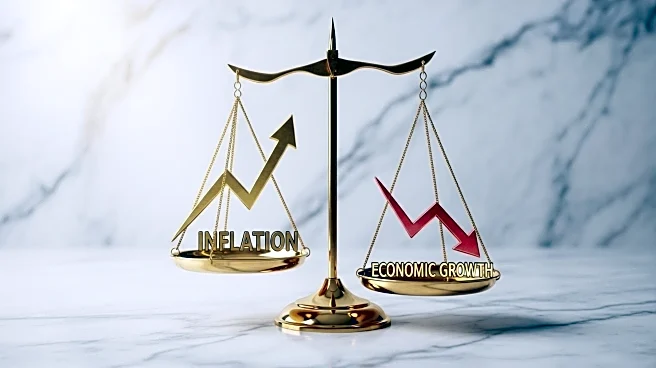What's Happening?
According to a CNBC Fed Survey, President Trump's actions towards the Federal Reserve are perceived by 82% of respondents as efforts to limit or eliminate the central bank's independence. The survey, which included economists, fund managers, and strategists, suggests that Trump's pressure campaign will lead to higher inflation, increased unemployment, and weaker economic growth. A majority of respondents believe these actions will lower the value of the U.S. dollar. The survey also indicates a divided opinion on interest rates, with equal percentages predicting both lower and higher rates as a result of Trump's actions. The Fed is expected to cut rates by a quarter point, but there is disagreement among respondents on whether this is the appropriate move.
Why It's Important?
The perceived threat to the Federal Reserve's independence could have significant implications for U.S. monetary policy and economic stability. If the Fed's ability to operate free from political interference is compromised, it may affect its capacity to manage inflation and support economic growth effectively. The potential for higher inflation and unemployment could impact consumer spending, business investment, and overall economic confidence. Additionally, the weakening of the U.S. dollar may influence international trade and financial markets.
What's Next?
The Federal Reserve's upcoming decision on interest rates will be closely watched, as it may signal the central bank's response to political pressures. Economists and policymakers will continue to debate the appropriate course of action to balance growth and inflation concerns. The ongoing discussion about the Fed's independence may lead to legislative or regulatory efforts to protect its autonomy and ensure effective monetary policy.










